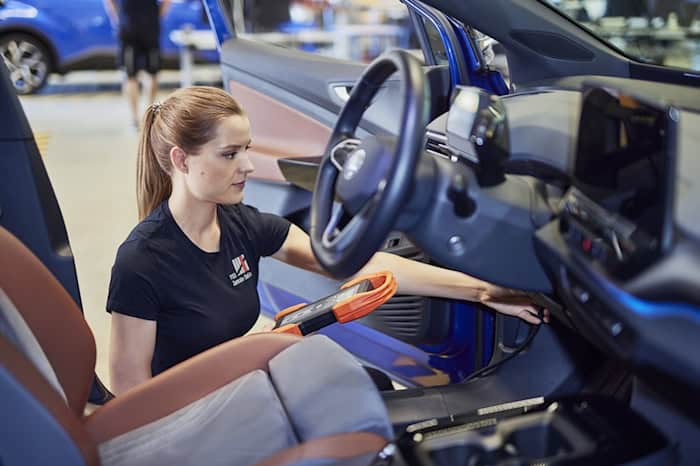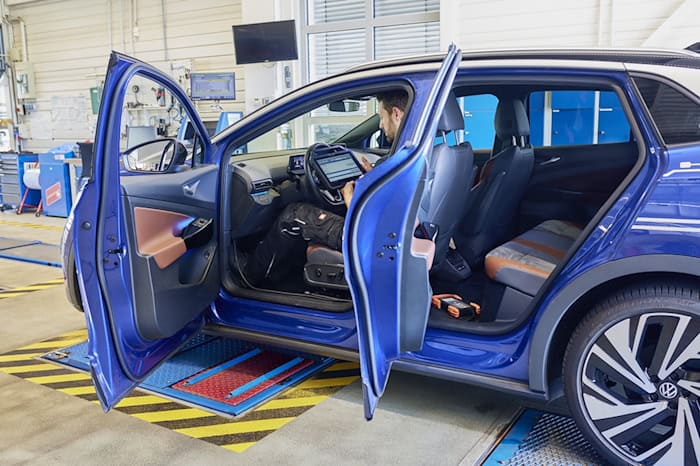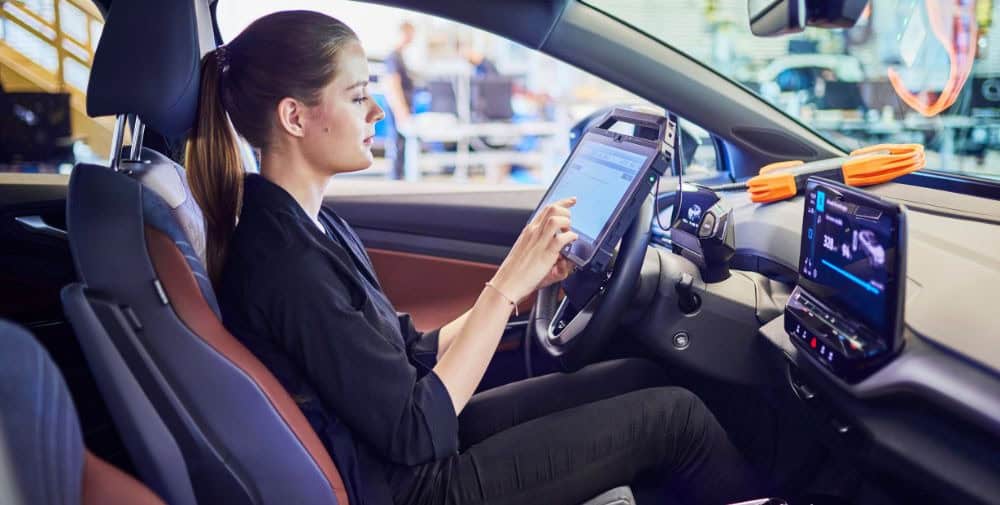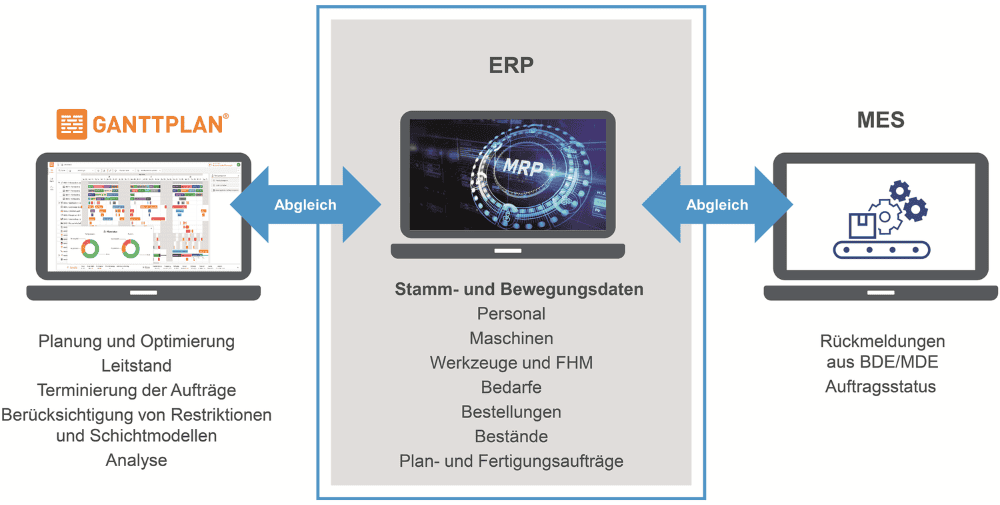Vehicles become rolling “computers” – One software application to test them all
Since its foundation in 2004, FSD GmbH has been working on the development, provision and validation of specifications for the general inspection and safety testing of vehicles of all kinds. In April 2006, the German inspection organizations used the specification information system (VIS) developed for this purpose in Dresden with the software application FSD.HU 21 for the first time. This supports experts in carrying out general inspections and provides all the necessary information on specifications, test instructions and safety and environmentally relevant vehicle components and systems. Via notebook, tablet or smartphone, experts now receive digital support in the form of “step-by-step” instructions for checking all HU-relevant components and systems of a large number of vehicles to be inspected. This digital assistance for experts should not stop there. After all, since the introduction of the first electronically controlled vehicle systems (e.g. cruise control, central locking or fuel injection systems) in the 1980s, a lot had changed for the German inspection organizations. It was no longer possible to guarantee the safety of vehicles exclusively by analog means, i.e. by means of manual visual and functional tests. The digitalization of testing procedures had to keep pace with the digitalization of vehicles. This is because the once purely mechanical vehicles had long since been transformed into moving computers. 90 percent of all innovations in vehicles are now electronic.

Testing a vehicle with the HU adapter. Photo: FSD GmbH
More than just a database – the HU adapter reads all vehicle data
Since 2015 (HU) and 2017 (SP), the German inspection organizations have been tapping into the vehicles, their systems and data storage themselves thanks to a smart FSD development – the HUAdapter21. “Take a close look over the expert’s shoulder at your next HU appointment. Then you can experience our developments live,” explains Dr. Phillip Schuricht, Managing Director of FSD GmbH. With one click, the inspectors connect the HU adapter developed in Dresden to the vehicle’s internal onboard diagnostic interface (OBD interface). Just a few minutes later, the vehicle reports all test-relevant faults and defects and provides the expert with a detailed report on components, functions, software versions and all safety-relevant information. Unlike the numerous brand-specific workshop testers, the HU adapter accesses data from 2,300 vehicle models from around 100 existing vehicle manufacturers, supports all standard bus systems and communication protocols (e.g. CAN, K-Line, Ethernet) and even uses its own acceleration and torsional rate sensors (e.g. for measuring rotational speed, acceleration values, dynamic deceleration measurement or axle damping tests) for test drives. Thanks to this support and despite all the electronic innovations, the HU and SP inspections have not become any more complex or time-consuming than before from the user’s point of view. In the same amount of time – around 20 to 30 minutes per vehicle – far more tests are now carried out than in purely analog times, and to a much higher quality.
However, not all major vehicle manufacturers offer FSD GmbH, and therefore the German testing organizations, the necessary access to their own vehicle systems. From Tesla to new Chinese vehicle producers and small series manufacturers, there are a number of companies that do not allow or make it difficult to gain a deeper insight into the technical systems. “In principle, all vehicle manufacturers who want to sell their vehicles in Germany and Europe are obliged to provide us with all information relevant to testing. We record this information in our VIS database (Specifications Information System). Despite this obligation, not all manufacturers make it easy for us to work with them. Time and again, we come across companies that do not provide their data or do not provide it in the desired quality. Even when it comes to obtaining direct access to the systems and data of the individual model series via our HU adapter, we are dependent on the will and cooperation of the vehicle manufacturers. We have to conclude a contract with each company for the use of vehicle data and systems. Some manufacturers are reluctant or refuse to do so, such as Tesla. Others are still too new on the market. Still others are simply too small to justify their own agreement,” explains Dr. Schuricht. Even today, experts still come across vehicles that can be found in the FSD database, but only have their safety checked in analog form, supported only by the digital test instructions.

Testing a vehicle at the Radeberg Test Center of FSD GmbH. Photo: FSD GmbH
A unique business model finances the future of general inspections
Due to the sometimes very different electrical/electronic architectures of vehicle manufacturers, consisting of control units including computer cores, operating systems, different sensors and actuators, data storage and system languages, the work of FSD GmbH with its vehicle engineers and around 60 employees in the development and IT departments is not easy, even apart from these contractual uncertainties. Cross-manufacturer standardization in the automotive sector would certainly be desirable and is also supported and promoted by FSD GmbH in various national and European committees (including the CITA International Motor Vehicle Inspection Committee), but is currently still a long way off. For each vehicle model to be included in the test catalog, separate test procedures must therefore continue to be developed, digitally stored and finally tested and validated. For this purpose, the Dresden-based company operates a test laboratory as a branch office in nearby Radeberg. Up to 600 vehicle models are rented here every year for testing and validation purposes and then undergo extensive series of tests on test benches and test courses. Work is also already underway here on the future of the HU test. Whether sensors, emergency braking systems or automated driving functions – FSD GmbH is working on numerous new test procedures and functional tests that are to be made available in the future. Further costs that the company is cushioning with the help of a unique business model. For every main inspection carried out in Germany, FSD GmbH receives exactly one euro as a statutory fee on behalf of the public sector. With 30 million main inspections per year, this is not a bad deal that finances the offsetting costs for software and hardware development, staff and infrastructure. From FSD’s point of view, financing via the “HU Euro” is a successful model in view of the achievements in modern, digital main inspections. However, there are still major challenges to be overcome in the future with the help of this public funding in the further development of the HU. The new generations of electric and/or automated vehicles will ultimately make tests using the HU adapter unavoidable. Whether defects in regenerative braking systems or the insulation of high-voltage systems – experts from the testing organizations are increasingly reaching the limits of analogue tests. The responsibility and workload of the FSD increases with every new vehicle model registered in Germany. And with it the costs to be financed. In future, automated vehicles will even have to be tested for safety every six months. This will also have an impact on FSD’s work and can only be achieved with state-of-the-art software and hardware solutions.
Field office of FSD GmbH in Radeberg. Test of an autonomous vehicle with a moving target. Video: FSD GmbH
A new system is created – A local software company provides support
The latest version of the VIS software application alone – now the 5th version, which will soon be rolled out to all 18,000 experts from the German testing organizations – has taken several years to develop and has cost around seven million euros so far. It was developed in parallel to the current version with the support of the Saxon software cluster, using state-of-the-art methods, a new architecture and a fresh design. In particular, the collaboration with Silicon Saxony member DevBoost proved to be a stroke of luck. The Dresden-based company, which specializes in software product development, brought many new impulses to the FSD development team and acts as a central partner in the implementation of the new product version. Dr. Tobias Nestler, Managing Director of DevBoost GmbH, says of the collaboration: “For us, the collaboration with FSD is a prime example of a partnership of equals. On the one hand, we were able to effectively contribute our expert knowledge and our working model, but on the other hand, we also learned a lot from FSD. Our employees are now looking forward to the new product version going live just as much as their colleagues at FSD.”
Other small, medium-sized and large companies from Saxony are also involved in the further development of FSD systems. Initially only selectively, but later more and more intensively, a joint project was created that will soon provide German testing organizations with state-of-the-art technology that is also intuitive to use. With the help of a new architectural concept, a system was created that meets user requirements as well as the available technologies. From machine learning to the use of artificial intelligence, the new system will use everything that makes the huge amounts of data as manageable as possible. Innovative database systems based on an initially evaluated and subsequently implemented data factory concept from the Fraunhofer IVI will be used. “Once again, applied research is laying the foundation for successful business practice,” says André Rauschert, Head of Digital Processes at Fraunhofer. Instead of developing a system for Android and one for Windows in parallel, as was previously the case, the new 5th generation system will be able to serve both of these operating systems and possibly other operating system standards, such as iOS, equally.
In order to make this possible, each development step was carefully evaluated and tested – using appropriate agile software methods. An initial model was followed by the first implementations and functionalities. The transition from the old to the new system is now taking place step by step. All without negatively impacting the work of the experts or changing the usual work processes of the inspection organizations. The developers at FSD and DevBoost have worked closely together on this over the past few years and continue to do so today. When finally rolled out, the new system will completely replace the old one and determine the future of FSD GmbH – at least in the digital area – for years to come. With maximum automation and minimum maintenance, the new system design will also make a significant contribution to the company’s profitability. “In the future, it will be even easier to integrate new functionalities into the system and thus keep pace with the rapid developments in the automotive industry,” says Dr. Schuricht confidently. So follow the tip and keep your eyes open at the next general inspection. Experience software and hardware “Made in Dresden” live and in action. Hopefully with a good result for you and your vehicle.
Contacts
FSD Fahrzeugsystemdaten GmbH
Wintergartenstraße 4
01307 Dresden
Phone: +49 351 6528880
Email: sekretariat@fsd-web.de
Web: https://fsd-web.de/
DevBoost GmbH
Kaitzer Straße 36
01187 Dresden
Phone: +49 351 89670820
Email: info@devboost.com
Web: https://devboost.com
– – – – –
Further links
👉 About FSD GmbH
👉FSD.HU21
👉 FSD.SP21
👉 HUAdapter21
👉 Fraunhofer IVI, Digital Business Processes
👉 DevBoost: Benchmark for your own software product development
Photo and video: FSD GmbH
– – – – – –
This article was written exclusively for “NEXT In Focus: Software”.
👉 To the full issue of the magazine





